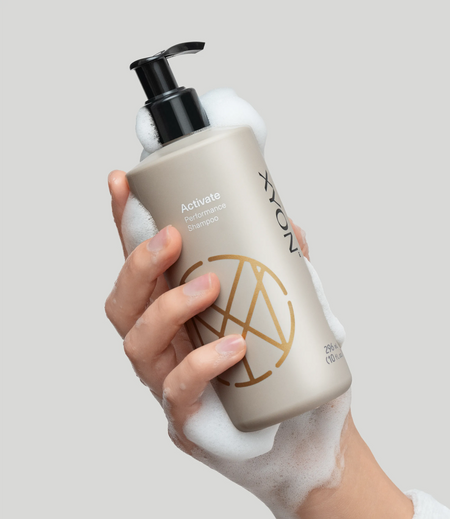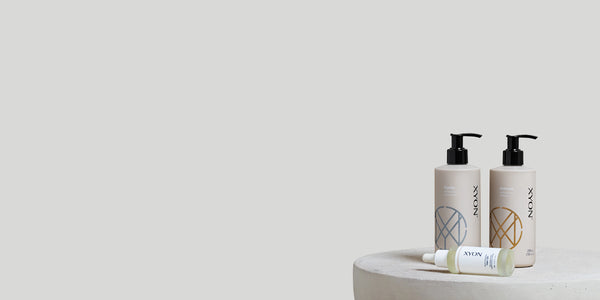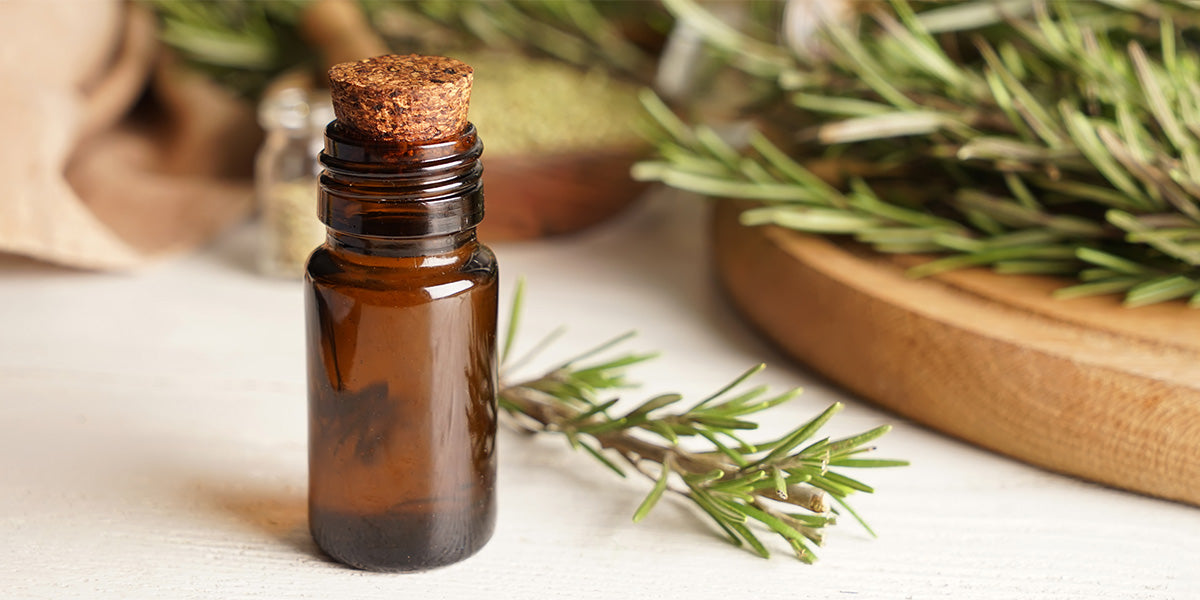For centuries, essential oils have played a significant role in the alternative medicine and cosmetic industry, tracing back to ancient Egyptians using them in perfumes and ointments. Today, they’ve attracted attention as a possible solution for hair loss and you’ll often find them featured in hair care products. But the question remains: is there enough research to support essential oils for hair growth and are there any safety implications?
What are essential oils?
Essential oils are substances found in aromatic plants which can be extracted and used for a variety of different things, including medicinal and cosmetic purposes. They are complex compounds, with some essential oils containing up to 400 different chemicals (Groot & Schmidt, 2016). Many essential oils are thought to have pharmaceutical benefits including antibacterial, anti-inflammatory and antimicrobial properties, yet the scientific research to support this is minimal.
A link has also been made between hair growth and essential oils and it is thought that certain oils can positively influence the hair growth cycle. Lavender oil is believed to prolong the growing phase of the hair cycle (known as the anagen phase), whilst also delaying the transition into follicles resting and shedding hairs. Peppermint oil has been linked to hair growth by encouraging the hairs to enter the growth phase earlier, which can promote quicker hair growth. Many other oils have been implicated in hair growth and thickening, with limited scientific research investigating their mechanisms.
Below, we explore some of the key essential oils that have been linked to hair growth, including any relevant data. It is important to bear in mind that the research surrounding this topic is in the preliminary stages and addressing your hair loss primarily using essential oils may endanger your hair further, by delaying necessary treatment.


Our Women's Natural Hair Loss Solutions Are Available Now!
XYON's natural women's hair loss solutions use the perfect blend of all natural ingredients known to help combat hair loss in women.
Best essential oils for hair: overview
Rosemary oil
Rosemary oil is thought to have vast therapeutic properties, including the treatment of epilepsy, addiction, stress and anxiety (Rahbardar & Hosseinzadeh, 2020). It has also been recognized for its potential hair growth properties and this has gained popularity in the cosmetic industry, with many hair care products incorporating rosemary oil and extract into their ingredients. Hair growth benefits are related to its antimicrobial properties and blood circulation improvement, both of which may contribute to a healthy scalp. Rosemary oil has also been linked to improving hair growth in certain hair loss conditions, but with minimal research to support this.
One study performed a direct comparison of hair rosemary oil and topical minoxidil (an approved drug for hair loss) for hair growth in androgenetic alopecia, the most common form of progressive hair loss in men and women. It was found that rosemary oil had similar effects on hair counts compared to minoxidil after 6 months of use and interestingly, treatment adherence was better when using rosemary oil than minoxidil (Panahi et al, 2015). However, the study chose to use a concentration of 2% minoxidil when there are higher concentrations available for use in hair loss and these may have produced different results.
Although rosemary oil may be beneficial for androgenetic alopecia, there is minimal research surrounding its use for other types of hair loss and we recommend seeking professional advice at the first signs of hair loss.
Peppermint oil
Peppermint oil is also thought to be beneficial for hair growth. Menthol is the primary component of peppermint oil and it produces a cooling sensation when applied to the skin. Menthol is thought to increase blood flow to the scalp, stimulating follicle growth and produce thicker, stronger hair strands. However, more research is needed to gain a better understanding of this mechanism.
One study investigated the effects of peppermint oil versus minoxidil on hair growth in mice (Oh et al, 2014). Peppermint oil was found to induce thick and long hair growth in the mice after 4-weeks of application, which was faster than minoxidil. Whilst these findings are interesting, there is a lack of additional research to support this and the results are not necessarily replicable in humans.
Lavender oil
Lavender oil is known for its properties in stress relief and relaxation and this can be useful for health conditions in which stress plays a major role. Alopecia areata is an autoimmune type of hair loss that often causes circular patches of baldness across the scalp and stress is thought to be significant in this condition (Ahn et al, 2023). Available data demonstrated that a combination of lavender oil and other essential oils mixed in a carrier oil and massaged onto the scalp, can be effective at promoting hair growth in people with alopecia areata (Hay et al, 1998).
There is no evidence to suggest that lavender oil is useful in all types of hair loss, including androgenetic alopecia and we always recommend speaking to a professional about treatment options if you are experiencing hair loss.
Lemongrass oil
Lemongrass oil is a popular essential oil used in alternative medicine as an antimicrobial and anti-inflammatory and some countries even use it as a treatment for diabetes (Boukhatem et al, 2014). It has been suggested that it can be beneficial for the treatment of dandruff and other scalp conditions.
This is because the oil is believed to have anti-fungal properties. A study using a tonic formulation with 10% lemongrass oil, found that it significantly reduced dandruff, but there is minimal other data available to support this property of lemongrass oil. Whilst this did not directly impact hair growth, maintaining a healthy scalp can be an important aspect of hair growth.
Are essential oils safe to use?
Whilst it’s easy to assume essential oils are safe because they can be a more ‘natural’ treatment, the high potency of oils makes them potentially harmful if used incorrectly.
Most essential oils cannot be applied directly to the skin and must be diluted before use. Direct contact with the skin can cause irritation due to the high concentration of chemical compounds within each essential oil. Applying essential oils directly to the scalp can also cause chemical burns and damage the hair follicles, which can trigger or worsen hair loss.
Essential oils are not safe to consume and toxicity can occur even when small amounts are ingested. Another risk associated with essential oil use is allergic reactions. You are more likely to have a reaction when using products containing synthetic chemicals, so it is important to check the label for purity before purchasing.
Hair oil and essential oils: what's the difference?
Hair oil is a type of hair care product that is generally comprised of a mixture of oils and other components, specifically formulated to achieve a desired result like adding shine and radiance or improving hair texture. In contrast, essential oils are unrefined and concentrated substances that cannot and should not be directly applied to the hair.
Which is better for hair growth?
Whilst there is some research supporting the use of essential oils for hair growth, there is still uncertainty about whether the risks associated with use outweigh the benefits. Hair oils can provide a more specialized approach to hair health concerns with fewer safety risks.
As an example, XYON’s Nourish Perfecting Hair Oil for Women has been formulated to help soften and smooth hair, whilst restoring its natural shine. It includes argan oil which improves the hair's elasticity, as well as almond oil, which is rich in fatty acids that strengthen and protect the hair and scalp against UV damage. Argan oil and almond oil are examples of seed oils, rather than essential oils. Seed oils come from the same plants as essential oils, but they are pulled from different portions of plants which are composed of fatty acids, vitamins and minerals. Because the chemical properties are different, the potential benefits and safety risks also differ.
These formulas are created with a full understanding of hair and scalp characteristics and needs. This is fundamentally different to single-ingredient, or pure essential oils that may be simpler in their composition but are less predictable when it comes to efficacy and safety.
Essential oils for hair growth: takeaway
When it comes to whether essential oils are effective for hair growth, the evidence isn’t strong, but this doesn’t mean that there isn’t a place for these ingredients in carefully formulated hair products. Shampoos and conditioners containing extracts supported by data can be beneficial add-ins to your hair care routine, especially if these are formulated to help promote general scalp health. But given that most of the research on this topic is in its early stages, we recommend seeking a professional medical opinion if you are experiencing hair loss. This is especially important if you notice that hair loss is progressing or if you have a strong family history of hair loss. In these situations, medical treatment may be necessary.
References List:
Ahn, D., Kim, H., Lee, B., Hahm, D.H. (2023) Psychological stress-induced pathogenesis of alopecia areata: Autoimmune and apoptotic pathways. International Journal of Molecular Sciences, 24(14). https://doi.org/10.3390/ijms241411711
Boukhatem, M.N., Ferhat, M.A., Kameli, A., Saidi, F., Kebir, H.T. (2014). Lemon grass (cymbopogon citratus) essential oil as a potent anti-inflammatory and antifungal drugs. Libyan Journal of Medicine, 9(1). https://doi.org/10.3402%2Fljm.v9.25431
Chaisripipat, W., Lourith, N., Kanalayavattanakul, M. (2015). Anti-dandruff hair tonic containing lemongrass (cymbopogen felxuosus) oil. Research in Complementary and Classical Natural Medicine, 22(4), 226-229. https://doi.org/10.1159/000432407
Groot, A.C., Schmidt, E. (2016). Essential oils, Part III: Chemical Composition. Dermatitis, 27(4), 161-9. https://doi.org/10.1097/der.0000000000000193
Hay, I.C., Jamieson, M., Ormerod, A.D. (1998). Randomized trial of aromatherapy: Successful treatment for alopecia areata. Archives of Dermatological Research, 134(11), 1349-1352.
Oh, J.Y., Park, M.A., Kim, Y.C. (2014) Peppermint oil promotes hair growth without toxic signs. Toxicological Research, 30(4), 297-304.
Panahi, Y., Taghizadeh, M., Marzony, T.E., Sahebkar, A. (2015). Rosemary oil vs minoxidil 2% for the treatment of androgenetic alopecia: a randomized comparative trial. Skinmed. 13(1), 15-21.
Rahbardar, M.G., Hosseinzadeh, H. (2020). Therapeutic effects of rosemary (Rosmarinus officinalis L.) and its active constituents on nervous system disorders. Iranian Journal of Basic Medical Sciences, 23(9), 1100-1112. https://doi.org/10.22038%2Fijbms.2020.45269.10541




